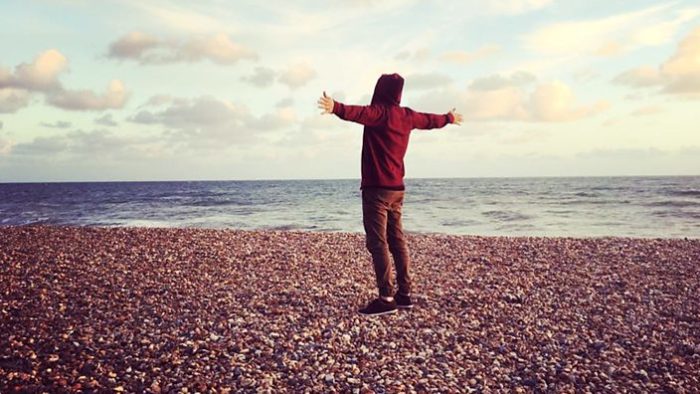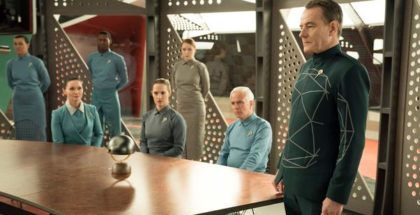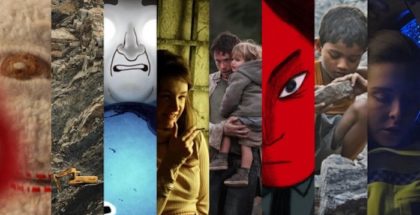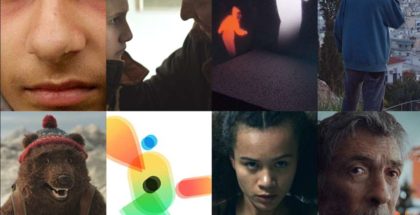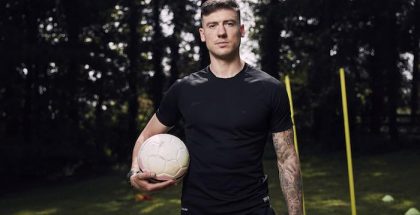Short film review: The Refugee Diaries (2017)
David Farnor | On 30, Jul 2017
Director: Jack Collins
Runtime: 12mins
Watch The Refugee Diaries online: YouTube (BBC Three)
Every Sunday, we review a short film available online. We call it Short Film Sunday.
“I need to get into university, mum. What else can I do?” That’s Thaer talking to his parent on the phone from London. The only difference between him and a normal student? He’s on his own in the UK – and his mum is in Syria, with the rest of his family.
Thaer fled his home country because of the war, securing a five-year residency in the UK, after moving Syria to Calais to Newcastle and eventually winding up in the UK capital. Like many others, he wants to study and progress with his life, but there’s a real sense of personal stakes for him: he wants to grow up and do his best, not just for himself, but his loved ones. He hopes to go back one day, once the conflict has ended. “The country needs its own citizens to rebuild it,” he tells us, with a loyalty that is commendable, and movingly sincere.
It’s that honesty that makes him such a powerful subject for The Refugee Diaries, BBC Three’s documentary series, released early in 2017. This week, the third episode of the series was nominated for a Grierson Short Documentary Award – the first time the Grierson awards have introduced a category to recognise short-form documentary filmmaking. As our Short Film Sunday has shown, there’s a wonderful diversity to what shorts can do, with fellow Grierson nominee Fish Story, from Charlie Shackleton, serving up an aquatic anecdote with a wry sense of humour. Episode 3 of The Refugee Diaries, though, reminds us of how important documentary shorts can be – in an age of viral videos and fake news, they can cut through the chaos to provide snapshots of truths and glimpses of human stories that otherwise go unnoticed.
Director Jack Collins does a brilliant job of placing us within Thaer’s day-to-day life of Tube journeys, job hunts and conversations with people back home. That access, and the sensitivity required to maintain that access throughout Thaer’s journey, is only part of the shorts’ impact: Collins manages to capture the entirely relatable side of a young person coming of age while still highlighting the gulf that divides him from others. Hunting for a flat, an estate agent tries to show sympathy for his war-town nation by clumsily using the phrase “postcode lottery”, while routine tasks such as revision are inevitably interrupted by news of fresh explosions at home.
Collins mixes confessional-style vertical videos, filmed on his phone, with third-person observation, allowing us a direct insight into Thaer’s thoughts and feelings, while stepping back to emphasise his distance from home during crucial moments: one exchange takes place solely via text, as his mum tells him a bomb went off near their home, but that everyone’s ok. A final shot of him on the beach in Brighton packs a wallop of catharsis, heightened by the tasteful music in the background, as Thaer takes one more step along a road filled with obstacles many in this country will never have to face, let alone contemplate. Roger Ebert once said that cinema is a machine for empathy. BBC Three’s work (it is nominated for a second short, Seventeen, as well) is a demonstration that empathy comes in all sizes.
Other 2017 Grierson Short Documentary Award nominees include Swan (Lindsay Brown), Adrift (Cath Le Couteur), Johanna (Ian Derry), Let’s Dance: Bowie Down Under (Rubika Shah) and The Moderators (Ciarán Cassidy, Adrian Chen).


